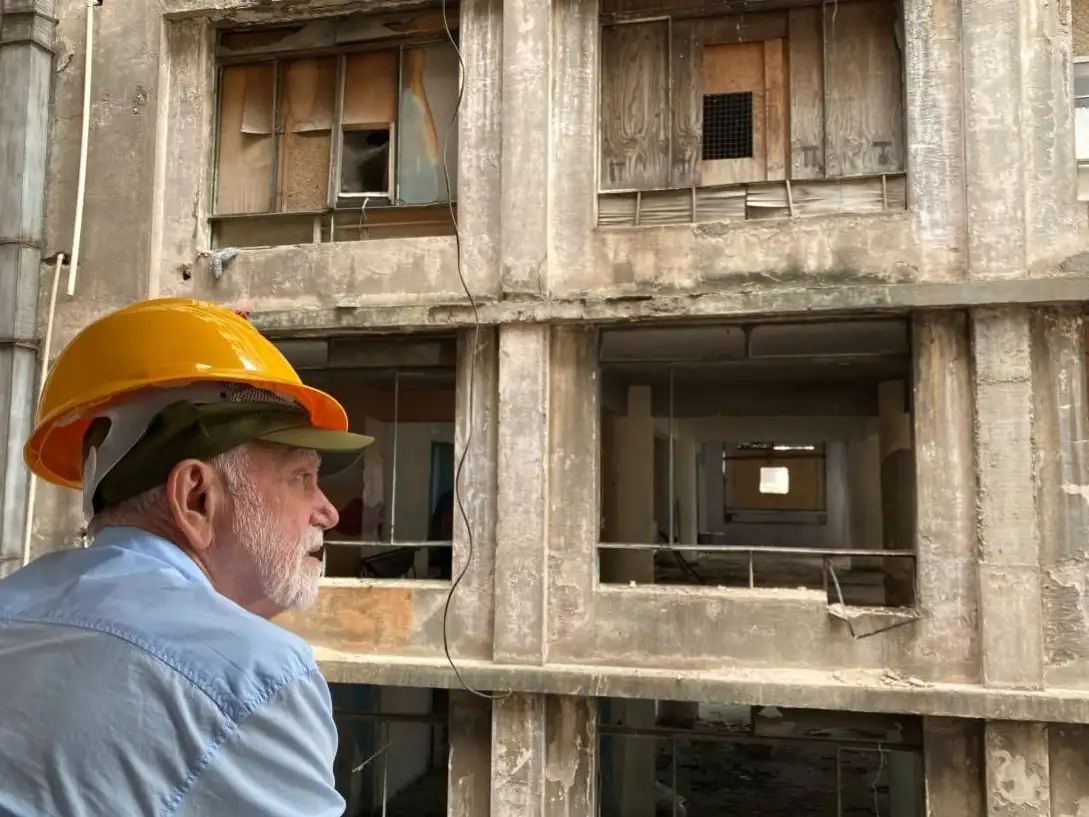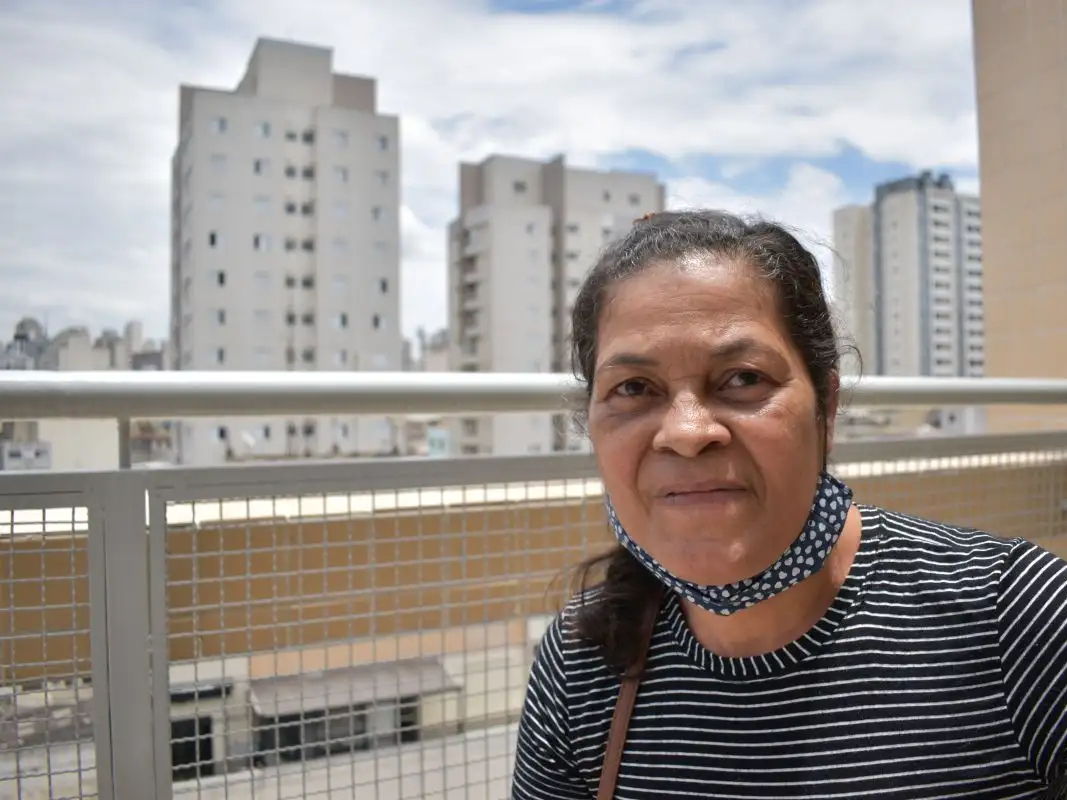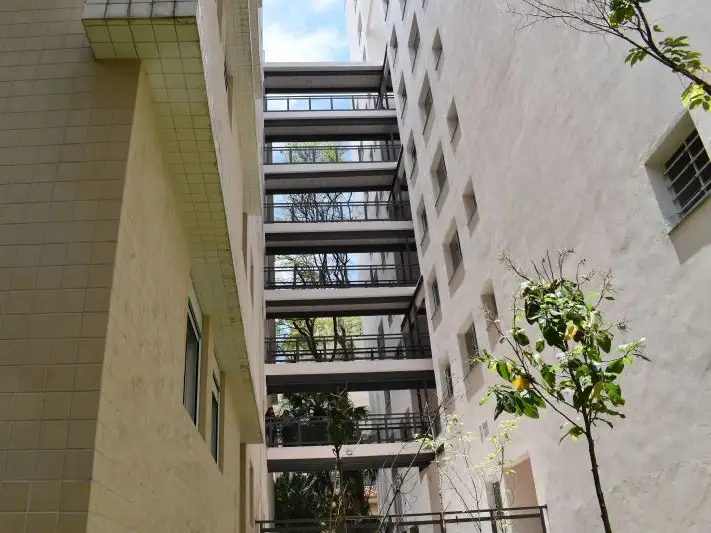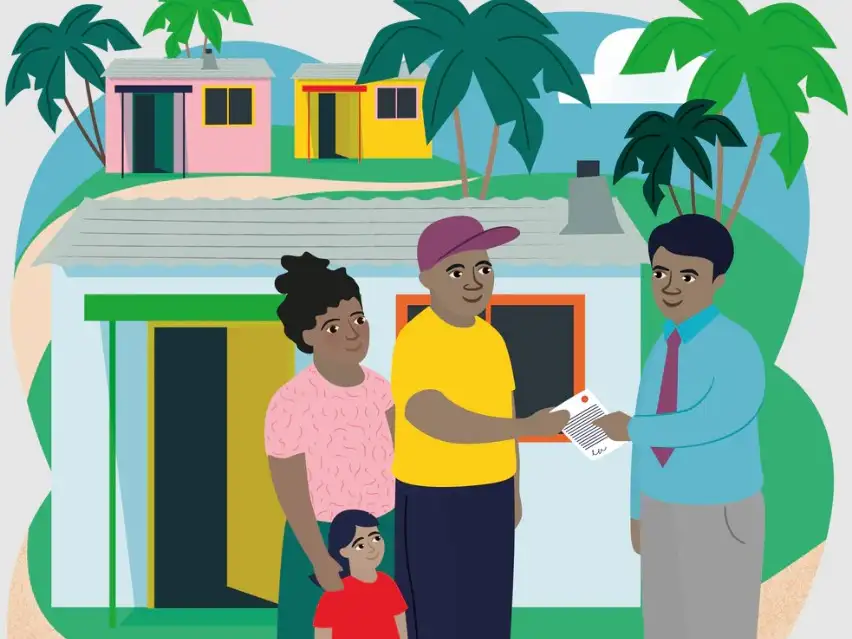Buy this World Gift to help vulnerable families at risk of homelessness understand their rights and campaign to secure safe, affordable, and sustainable housing.


Our partner SEMEANDO are supporting vulnerable communities in São Paulo, Brazil, to access safer housing, to live in dignity and protect our common home
On Tuesday 31 October we celebrate World Cities Day, a key moment to raise awareness of the importance of sustainable urban development around the world. Kezia Lavan, CAFOD’s Brazil Programme Officer, tells us about how our partner Semeando is helping some of the poorest families to access safe and affordable housing in São Paulo, Brazil.
"They called us vagabonds, I bowed my head, but deep down I knew I wasn’t a vagabond. I came to this building because it was empty. I knew I was a decent person."
This is how Vera describes her first experience of the neighbours outside Hotel Lord, an abandoned, once luxury building, on the edge of a fashionable neighbourhood of downtown São Paulo. For five years she occupied it alongside hundreds of other families campaigning for decent housing and safe neighbourhoods.
Today, the building has a new name ‘Elza Soares Residence’, in homage to the late great samba singer, and as a result of the families’ actions has been converted into secure, decent and affordable housing for 176 of São Paulo’s poorest families. This transformation is the result of ten years of campaigning, organising, resisting and mutual support by women and men like Vera, the housing rights’ groups they belong to, and CAFOD’s partner Semeando.
Securing housing for low-income families
Like Elza Soares, Vera was born into extreme poverty, overcoming multiple family tragedies and adversity. But unlike Elza, who, because of racism was once denied entry into this very same building, Vera will enter. And with the keys to stay. Following 10 years of campaigning, Hotel Lord was placed under compulsory purchase and following a public bidding process, the families’ won a public contract to turn it into housing for low-income families. Throughout this process CAFOD partner Semeando tirelessly supported the families to overcome the eviction threats, inevitable moments of disunity, lack of public funding, onerous bureaucracy and unfavourable legal decisions - all of which threatened the families’ claim on the building.
Vera tells me that her new two-bedroom apartment is the most beautiful thing that God has ever given her. The apartment is bright, freshly painted, spacious and equipped with a kitchen, shower and laundry area. The building’s modernisations include an accessible lift, children’s playground, and on the top floor, a community room looking onto one of the city’s most iconic views. Instead of paying rent, the families of Elza Soares building will pay instalments on 10% of the value of the property over 10 years, calculated for individual affordability.


Vera, a proud new homeowner in the Elza Soares building
Greater access to jobs and key services
The building’s central location enables access to jobs, services, educational and leisure opportunities, essential for a dignified life, and which many poorer citizens lack. In São Paulo, the richest city in Latin America, it is unusual to see poorer citizens housed in the centre. More typically, high rents and lack of urban planning push the poorest to the furthest edges of the city far from jobs, services and without basic infrastructure.
These families are disproportionately black and mixed-race people due to the legacy of slavery, racism and historical injustice. Over 2 million people live this way in the metropolitan area. Vera tells me how before joining the occupiers she ended up sleeping in a garage forecourt following a severe storm which washed away her shack in the favela.


Elza Soares building
The right to housing
Brazil’s constitution guarantees everyone the right to housing - itself a universal human right. Legally, buildings which are not fulfilling their social purpose to house people are in violation of the law and at risk of expropriation. As such, homeless people occupying such empty buildings acquire legal rights. With the support of CAFOD’s partner Semeando, members of housing rights movements like Vera learn about their legal rights, how to organise with others and to stand firm in the face of threats and intimidation.
Making a home
Vera was one of the first to occupy the building, spending the first 24 hours in total darkness. Having long been left empty, the building was very dirty at first, full of cockroaches and rats. Together with the other families, Vera would get up at first light every day to clean, but even so, the passers-by on the fancy avenue outside would call them names. But Vera tells me she made many friends in the movement, good honest people, like herself. Together they visited the market every day, collecting food that would be otherwise thrown away and turning it into meals in the communal kitchen, ensuring that no one went hungry.
Vera is overjoyed to finally have her own home and swears that even though she now has her flat and is ready to retire, she won’t abandon the housing rights’ movement. Her grown-up offspring call her ‘a warrior’, she tells me, but she reflects, ‘we need carry to on and show others what is possible, that we can do it!’


